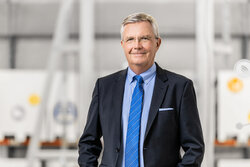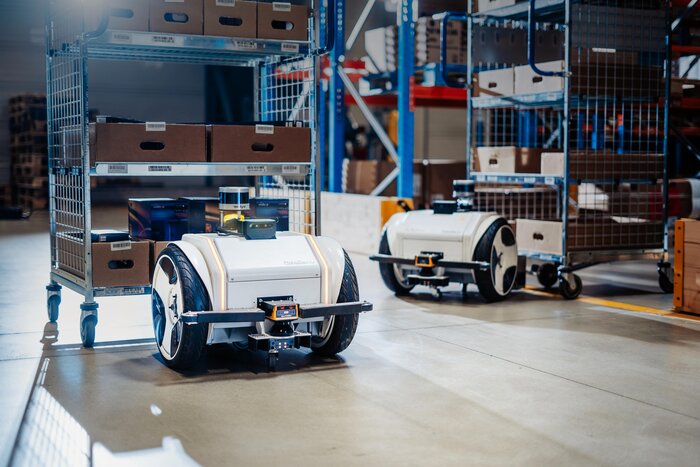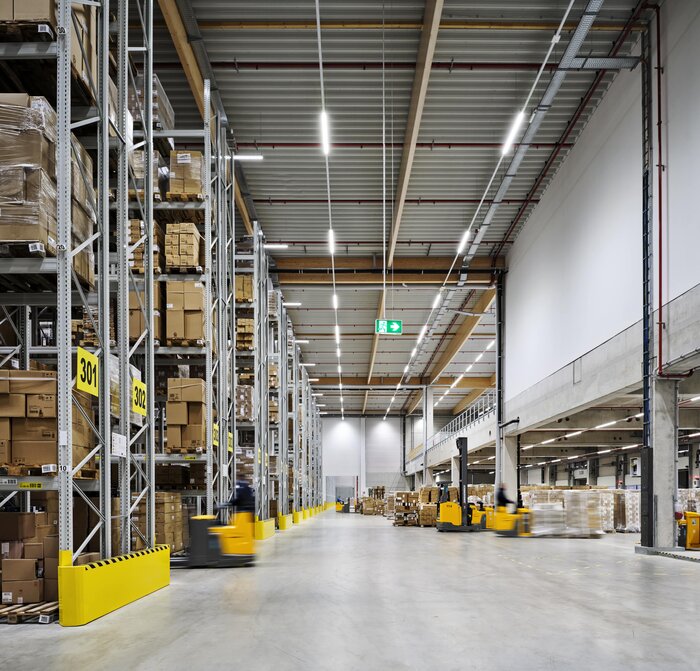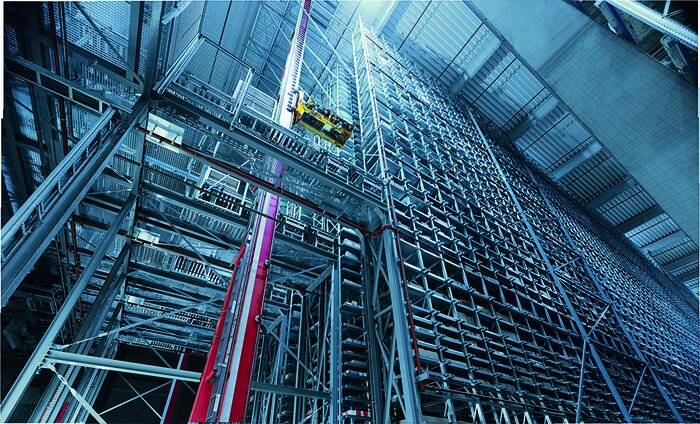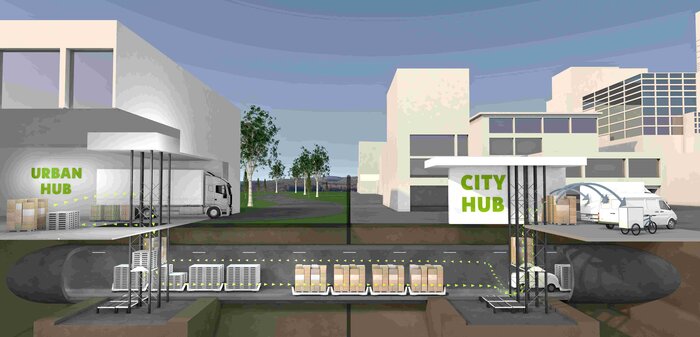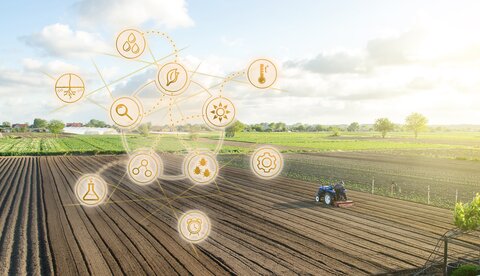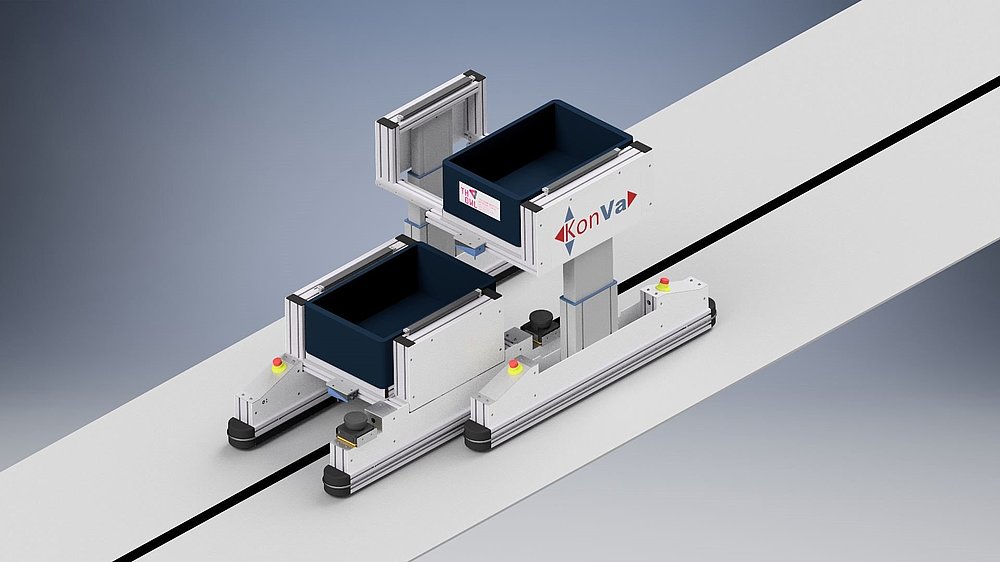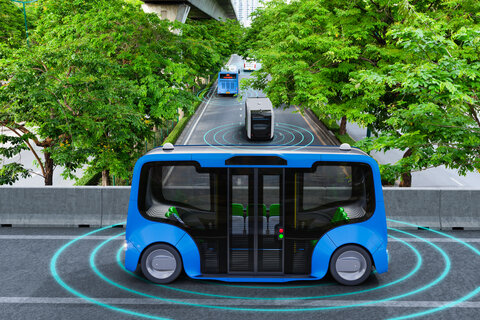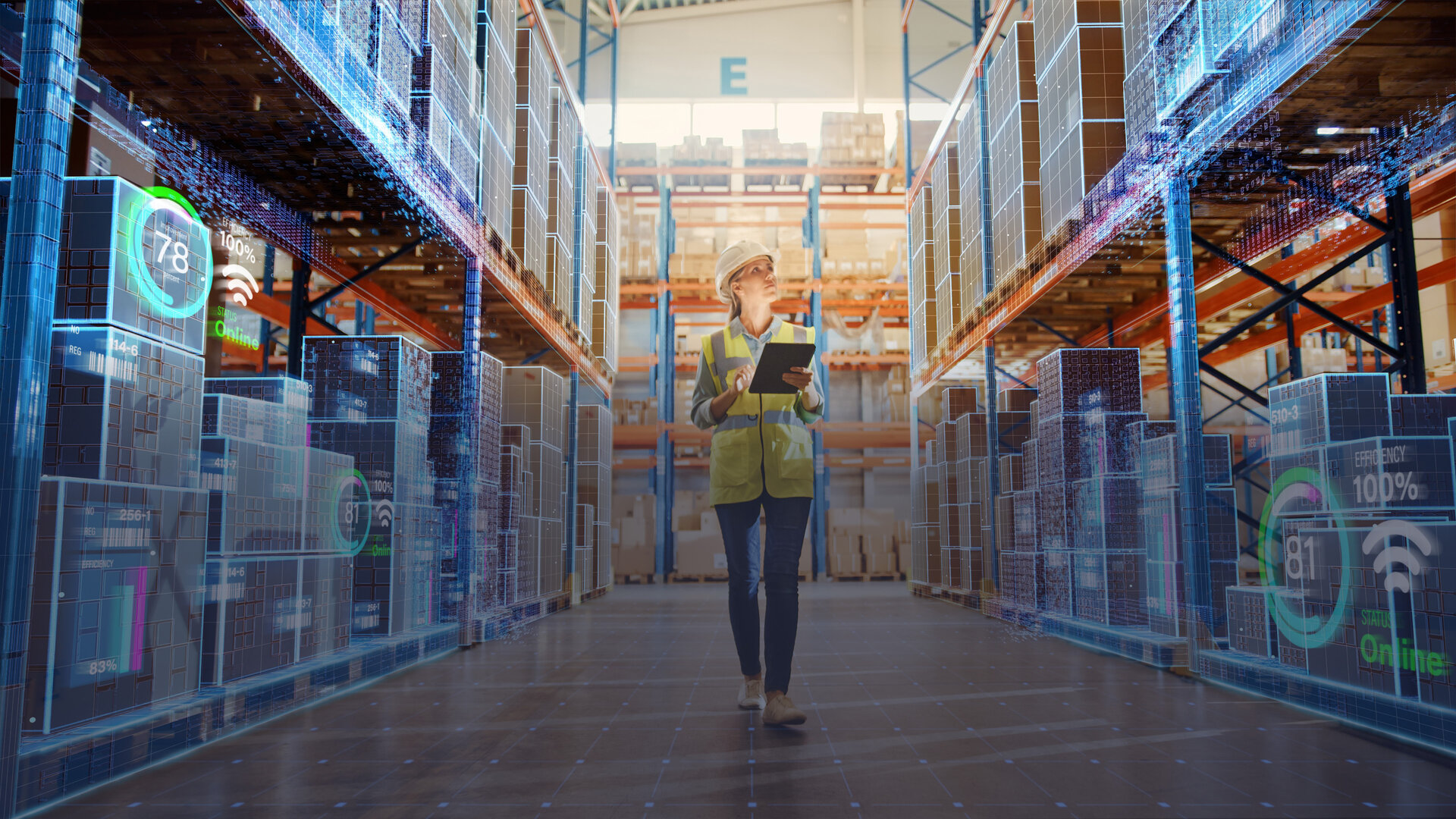
New Logistics in NRW
NRW is one of the most important logistics hubs in Europe.
With its central location, excellent transport infrastructure and proximity to the major Belgian and Dutch seaports, it offers ideal conditions for the logistics sector. All this makes NRW a leading growth center for the industry.
Tomorrow's logistics requires new approaches that are not only efficient and resource-conserving, but also advance digitalization and internationalization and address the shortage of skilled workers. NRW offers a wide-ranging research landscape and a large number of forward-looking companies that make the logistics location a pioneer of this change.
New Logistics refers to the holistic optimization, increased efficiency and sustainable design of logistics and supply chain processes. This includes not only innovative approaches to infrastructure development on roads, railways, waterways and in the air, but also the integration of state-of-the-art technologies. There is a particular focus on the use of artificial intelligence, machine learning, the Internet of Things and automation to meet the logistics challenges of the future with modern solutions. A large number of stakeholders are working on this, including logistics service providers, e-commerce companies, technology providers, supply chain management software companies, and transportation companies.
Logistics in transition: NRW companies for efficiency and sustainability
NRW is home to numerous companies that are revolutionizing the logistics sector with innovative solutions. They use technologies such as big data, artificial intelligence and blockchain to make supply chains as efficient and sustainable as possible. The close interlinking of logistics and digitalization is creating new business models and services that will strengthen NRW's economy in the long term.

REMIRA Group GmbH

proLogistik
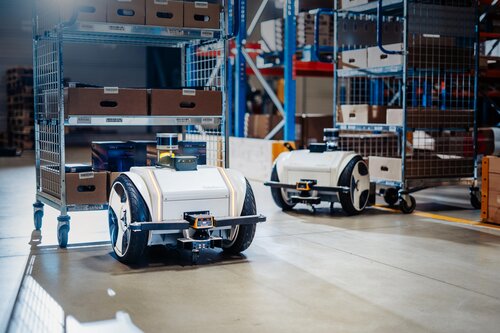
Fiege Logistik Stiftung & Co. KG
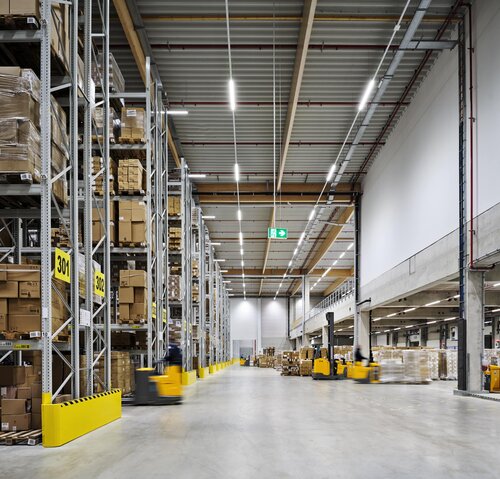
Rhenus SE & Co. KG
Where innovation meets ideal conditions
The country's most populous region offers young companies an ideal ecosystem to not only develop their forward-looking ideas for the logistics sector, but also to successfully implement them and establish themselves in the market.
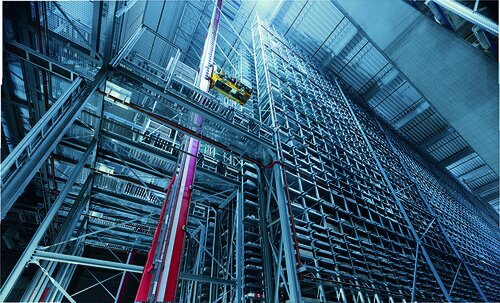
Depotcity

adiutaByte
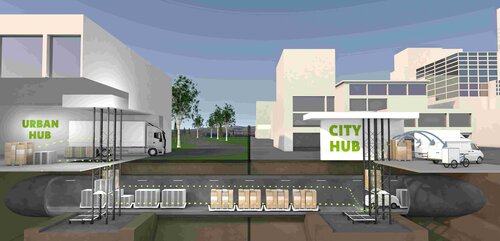
Smart City Loop
Trends and prospects for tomorrow's logistics
The New Logistics sector is striving for more efficient, sustainable and flexible logistics. A central trend is consolidated goods logistics, where products from different companies are transported together to optimize vehicle utilization and reduce urban traffic. Startups such as Liefergrün offer innovative digital supply chain solutions that tailor the operational planning of delivery and returns solutions to the individual needs of companies.
Another trend is comprehensive services for bulky goods that are difficult to transport. Startups such as brenger make it possible for individuals and SMEs to transport furniture and other bulky goods. This means that office moves, for example, can be handled holistically, from planning through packing to relocation.
A further trend is the use of robots to assist in the warehouse. Robots such as the modular MalocherBot from Unchained Robotics perform tasks such as sorting, palletizing, and automating machine loading to improve warehouse efficiency and ergonomics.
University and research landscape
North Rhine-Westphalia is considered a strong science location, particularly in the field of new logistics, due to its dense network of universities and research institutions. The state has a high level of expertise in many areas of research, including autonomous driving, real-time Internet of Things (IoT) analytics, mobility and traffic management, optimization of inter- and intralogistics systems and logistics for the circular economy.
Fraunhofer Institute for Material Flow and Logistics IML
Fraunhofer Institute for Intelligent Analysis and Information Systems IAIS
Fraunhofer Institute for Applied Information Technology (FIT)
OWL University of Applied Sciences
University of Duisburg-Essen
Photo credits
The photographic material was kindly provided by:
© Shutterstock, Fit Ztudio
© Fraunhofer IML
© Shutterstock, metamorworks
© AdobeStock, ipopba
© Fiege Group
© Rhenus SE & Co. KG
© John van Groendaal & Delta Development
© Rhein Kreis Neuss
© Shutterstock, tech_BG
© Smart City Loop
© Shutterstock, Robb Shaffer
© Shutterstock, NicoElNino
© Shutterstock, Andrii Yalanskyi
© TH OWL, Prof.‘in Dr.-Ing. Li Li/M. Eng. Julian Pölert
© Shutterstock, Suwin66
Welcome to NRW!
These and many other location advantages await you in NRW. Invest in one of the most attractive economic regions in Europe. NRW.Global Business will help you – contact us!
Other innovation topics:
In 4 easy steps to North Rhine-Westphalia | NRW
We support you in your successful settlement in NRW with our international offices abroad and our headquarters in Düsseldorf. We are your partner and accompany the project in confidence – from the first contact to the successful settlement and beyond.
